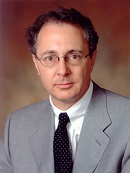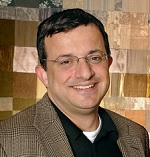After sending out signals that it might be running into trouble with a short-duration study of a new triple combination drug for its hepatitis C regimen, Merck ($MRK) investigators hailed the clear success of an 8-week test but confirmed analysts' fears in a batch of 4-week data released at the meeting of the American Association for the Study of Liver Diseases.
A mix of grazoprevir/elbasvir (MK-5172/MK-8742, MK-5172A)--the company's investigational NS3/4A protease inhibitor and NS5A inhibitor, in combination with Gilead's Sovaldi (sofosbuvir), an NS5B nuc inhibitor, clearly hit the mark with a 94.7% cure rate for treatment naïve cirrhotic patients at 8 weeks. But the combination fell well short of the goal line on efficacy at 4 weeks, with a cure rate of 38.7%. At 6 weeks the triple hit an 80% cure rate in the treatment-naïve group of cirrhotic patients while the non-cirrhotic cohort hit 86.7%--shy of the 90% level some analysts believe Merck is likely to face as a competitive hurdle cleared by rivals. All the patients in the study were genotype 1.
Merck's team declared the numbers were a win, but several analysts concluded that Gilead ($GILD) is the real winner today. In premarket trading Monday, Gilead's shares jumped more than 2% as the market potential for Merck's rival approach faded somewhat. The focus at Merck, which saw its shares slip about 2% this morning, will now be on new studies that include a new hep C drug--MK-3682--recently added to its portfolio.
"GILD's Harvoni clearly is best-positioned to lead the market at least until MRK successfully develops the Idenix nuc," wrote Leerink's Seamus Hernandez. "That said, consistent cure rates of >90% after 12 weeks of therapy for MRK's dual regimen across a wide range of GT1 patients suggest a competitive profile with ABBV and an opportunity to gain share from GILD and ABBV via managed care contracting."
"The 38% SVR rate for the 4-week regimen was well below our expectations and removes a risk of premature shortening of duration for HCV," Geoffrey Porges at Bernstein noted. "The other results of the trial were not particularly impressive, and it appears that two Merck drugs (MK5172 and MK8742) are probably no better than one Gilead drug (ledipasvir). The high rates of relapse, and of resistance variants, will cause concern."
 |
| Roger Perlmutter |
Porges had already flagged remarks by R&D chief Roger Perlmutter, noting that Merck has been downplaying the commercial implications in failing to come up with a quick cure for hepatitis C.
"Based on these comments," Porges noted earlier, "we think it is reasonable to expect a significant degree of variability in SVR rates across patients in the C-SWIFT study; further, we believe the study is unlikely to achieve a 90% SVR rate based on 4-wk (and even 6-wk) treatment duration. Any result short of 90% SVR rates is unlikely to generate usage based on the efficacy levels of GILD's and ABBV's all-oral regimens when given for the full duration studied in their respective Phase III trials."
Merck's next step will be to cut loose from Sovaldi and get its own MK-3682--acquired in the $3.85 billion Idenix buyout--into a slate of Phase II studies that will look at 8-week results. And Merck says it may once again go even shorter than that. At this point, a variety of new therapies are coming along that will likely eliminate the virus--the rivalry now centers on just how fast it can be done reliably.
 |
| Dr. Eliav Barr, VP of infectious diseases, Merck Research Laboratories |
"Our goal is to establish a simple, effective, well-tolerated regimen that is applicable across the diverse population of patients with HCV," said Dr. Eliav Barr, vice president, infectious diseases, Merck Research Laboratories. "The preliminary data provide us with the confidence to initiate our C-CREST study to evaluate a triple combination comprising Merck's investigational candidates from three major therapeutic classes of HCV medicines."
For payers, any news of successful progress with these new cocktails that don't belong to Gilead will be welcome. Payers, led by Express Scripts ($ESRX), have been kicking back hard at Sovaldi's $84,000 price tag, calling it an unbearable burden which threatens their stability. Just a few weeks ago Gilead won an approval for Harvoni, a combination of sofosbuvir and ledipasvir, for use in 8- and 12-week regimens. AbbVie ($ABBV) is pushing hard with its own rival cocktail, with a resurgent Merck hustling to play catchup and stay in the first group of rivals to follow on Gilead's success.
At this stage of the race, Merck is still poised to become a major player once again in hepatitis C, but without some of the marvelous cure rates that have become widely expected in the post-interferon drug class now taking shape.
- here's Merck's release